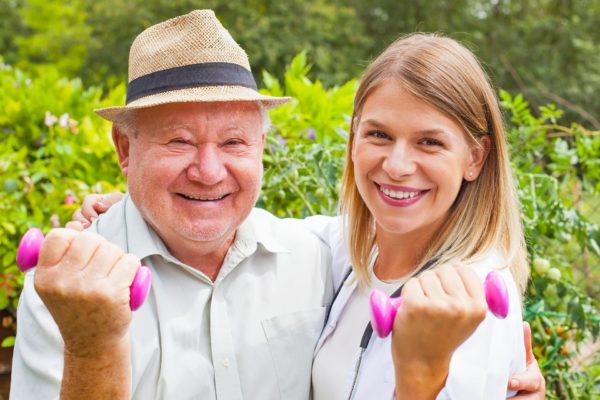
Arthritis may be a joint disease, but strengthening the muscles is an important component in its treatment. That is because a leading cause of limited movement in people with arthritis—especially, for instance, knee arthritis—is the weakening of surrounding muscles, rather than pain, dysfunction or abnormalities in the joint itself. This raises an important question: Is the muscle weakness caused directly by the arthritis, or do the initial arthritis pain and the subsequent lessening of normal muscle use cause a decrease in muscle tone, thus further weakening and leading to less use? It is a vicious cycle.
Experts know that the second scenario definitely plays a large role, although they are less certain about the first. But one thing is sure: It behooves you to strengthen the muscles near arthritic joints to help protect your mobility. When your muscles are stronger, you can more effectively perform joint-specific range-of-motion exercises—not to mention crucial activities of daily living. This can help preserve the joints’ function for the longer term while also decelerating any progression of osteoporosis. Stronger muscles also tend to improve your balance, which is crucial as people age. The kinds of muscle-strengthening exercises we suggest will vary, depending on your symptoms, of course. The most common ones include working against a resistance or weight. This resistance can be provided by water in a pool—sometimes the easiest and most soothing way to strengthen—or by elastic bands, hand-held weights or a weight-training machine. We often suggest eight to 10 different exercises, each to be repeated about 10 times, two or three times a week. As you become stronger, we will gradually increase the resistance or weight. And taking a warm bath or shower before performing exercises (muscle strengthening or other kinds) can make the movements of stiff or sore joints more comfortable. People who exercise—including people with arthritis performing modified exercise—tend to sleep better, feel better emotionally, experience better overall health and even live longer. So, taking the time to work those muscles with a carefully planned exercise regimen, even when you may not really feel like it, will almost surely pay off in the long run.
